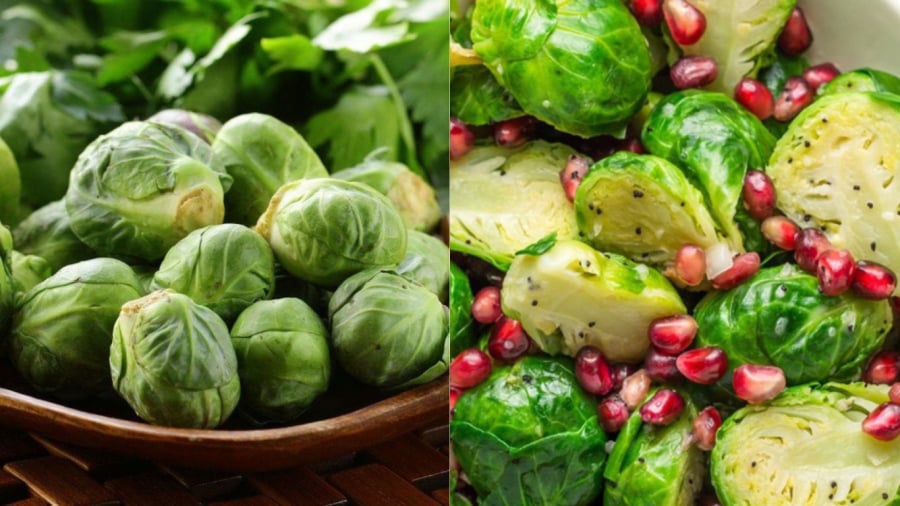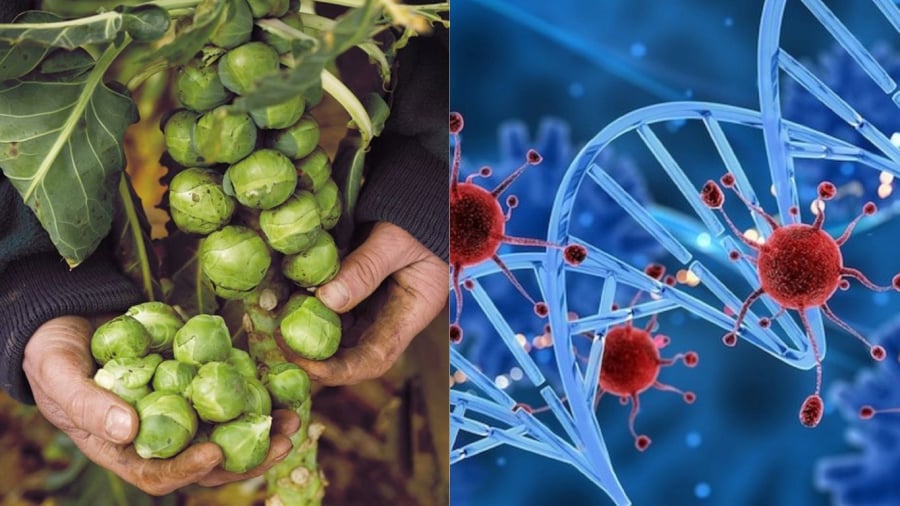Tiny but mighty, Brussels sprouts pack a powerful punch when it comes to cancer-fighting properties and overall health benefits. This miniature vegetable boasts a high nutrient content and cancer-preventive capabilities. Often overlooked in daily meals, when incorporated correctly, Brussels sprouts can naturally and effectively safeguard your well-being.
1. Brussels Sprouts: The Tiny Cancer-Fighting Vegetable with Abundant Health Benefits
Brussels sprouts, affectionately known as mini cabbages, originate from the Mediterranean region. In recent years, they have made their way to Vietnam and are increasingly gracing dinner tables due to their exceptional nutritional value and health advantages.

Brussels sprouts, the miniature vegetable from the Mediterranean.
2. The Health Benefits of Brussels Sprouts
Brussels sprouts are rich in fiber, vitamin C, vitamin K, carotenoids, and folate—essential components for efficient bodily functions and disease prevention. Carotenoids act as antioxidants, neutralizing free radicals that primarily damage DNA and trigger cancer. Research also indicates that carotenoids enhance enzymes that metabolize carcinogens and encourage the self-destruction of abnormal cells.

Brussels sprouts are effective cancer-fighting miniature vegetables.
Vitamin C, a potent antioxidant, safeguards DNA and impedes the formation of carcinogens while bolstering the immune system. Studies suggest that vitamin C supplementation is associated with a reduced risk of lung cancer in smokers and colorectal cancer.
Folate plays a crucial role in cell development and division, red blood cell production, and maintaining neurological function. It is especially vital for pregnant women, as it prevents neural tube defects in fetuses.
The fiber content in Brussels sprouts aids digestion, prevents constipation, regulates blood sugar, and lowers the risk of diabetes, obesity, cardiovascular issues, and cancer. A 100-gram serving of Brussels sprouts provides a substantial 3.8 grams of fiber.
Vitamin K content in these sprouts is impressive, offering 194 mcg/100g, which meets over 240% of the daily requirement for adults. However, individuals taking vitamin K-antagonist anticoagulants should consult their doctors before incorporating them into their diet.
Brussels sprouts are also beneficial for diabetics due to their high fiber content, which slows down the absorption of sugar into the bloodstream, thus maintaining stable blood sugar levels. Increasing the consumption of cruciferous vegetables, including Brussels sprouts, alongside a healthy diet, supports effective diabetes management.
3. Preparing Brussels Sprouts
This cancer-fighting miniature vegetable can be cooked similarly to other cabbage varieties. However, overcooking results in a strong odor and nutrient loss. The best preparation methods are steaming halves for 8-10 minutes or stir-frying with olive oil for 10-12 minutes, preserving their natural flavor and maximizing nutrient retention.
With a host of health benefits, from cancer prevention to immune support, cardiovascular protection, and blood sugar control, Brussels sprouts deserve a regular spot on your menu. Remember to prepare them right to unlock their full potential.



































